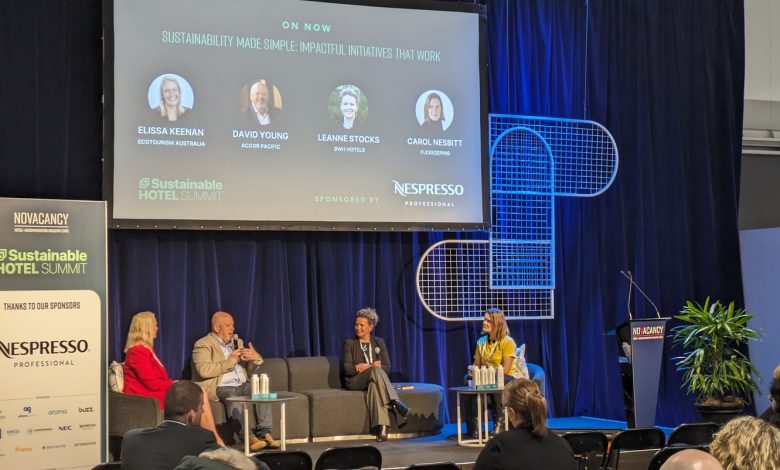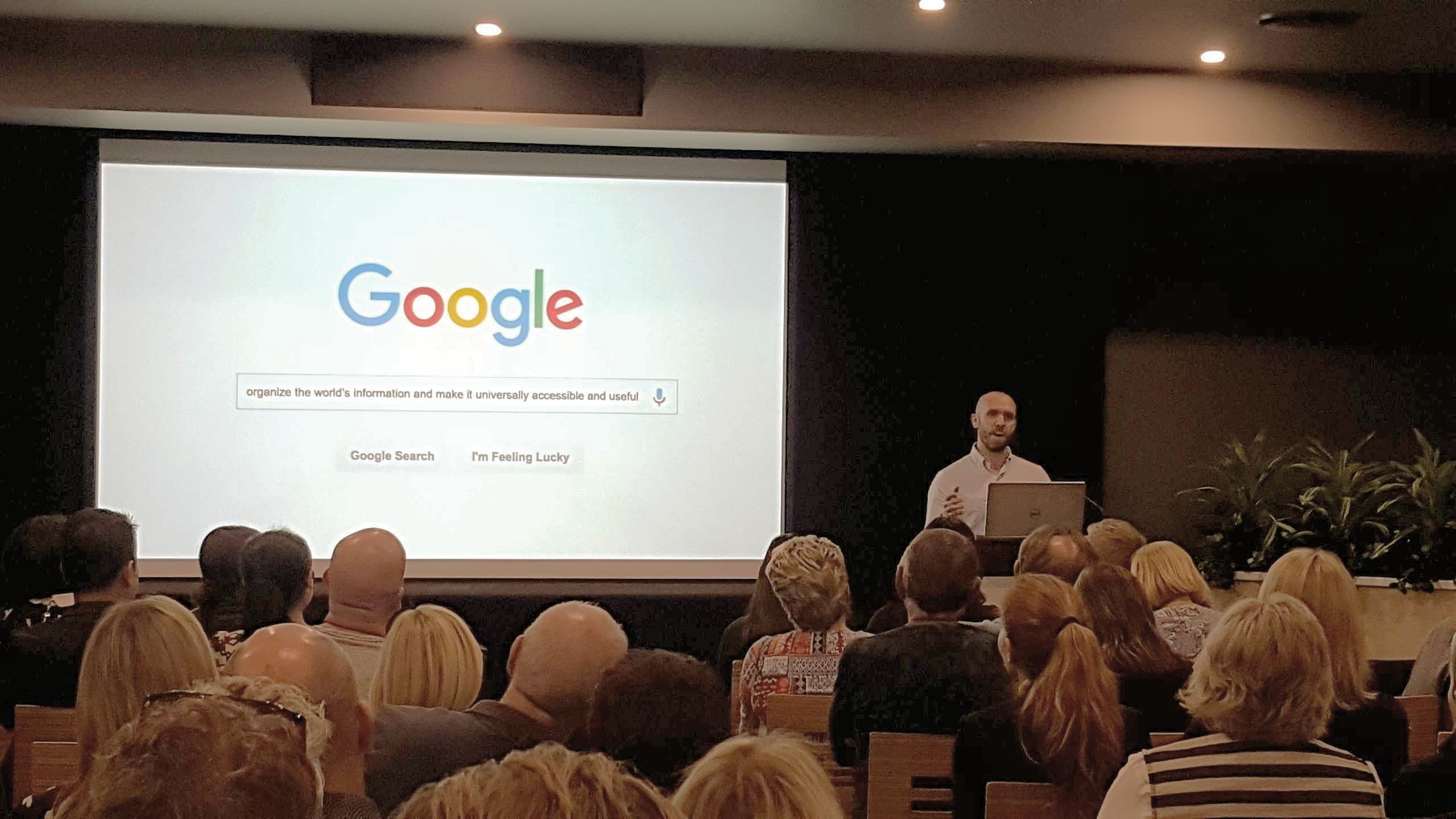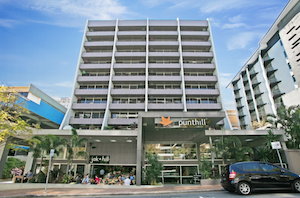
Op-Ed: Small hotels, big impact: strategies for ESG success
David Nicolas on why "Environmental, Social, Governance" is so often misunderstood
Let’s address the elephant in the room: ESG (Environmental, Social, Governance). For many small to medium hotel owners, these three letters often evoke feelings of being overwhelmed and resource-intensive.
As someone who is familiar with the subject matter, I understand that sentiment.
Originally published in the AccomNews print issue, available now. Read it HERE
Let’s dig a little deeper!
ESG is often misunderstood because of its perceived complexity and high resource expenditure. But what if we reframe this narrative? What if ESG could be an innovative and value-adding journey that not only meets regulatory requirements but also redefines a hotel brand in the eyes of its guests and the community?
“The ROI is uncertain, and the initial investment scares us,” is a common sentiment I hear. But what if these challenges aren’t roadblocks but stepping stones to a more sustainable and profitable future?
From compliance to advantage
I believe it’s time to flip the script and look at the “value creation” opportunities that ESG offers.
This has been rebranded as ESG 2.0 or even 3.0 especially when we start including technological advances like blockchain and AI.
‘Materiality’ is a financial term used in ESG conversations. In simple terms, it means the most relevant or important aspect a hotel should start with when implementing ESG.
ESG 2.0 is more about ‘impact materiality’. This means investing in data collection that goes beyond ticking compliance boxes but measuring the impact these initiatives are having both intrinsically and extrinsically on the business itself and its surrounding community.
For example, reporting on certified social and environmental impact that your hotel has been able to achieve has much more weight with your stakeholders than some greenwashing targets you might include on your website. Substance is so significant when it comes to ESG value creation.
Where to begin?
The first decision for a small hotel should be “what aligns with my business goals, budget and values to get me started.”
Addressing the often neglected ‘S’ is to consider the community-building aspect of ESG. These initiatives foster a sense of community among guests and staff.
Another often overlooked facet of ‘S’ is employee satisfaction. A happy and satisfied workforce is more likely to provide excellent service, leading to happy guests. Some hotels have introduced flexible working hours, mental health support, and training programs focused on sustainability and community service.
An innovative solution for this that I’m personally involved with is the purchase of social impact credits through models like the Firefly Initiative. This allows hotels to buy outputs that volunteering organisations and their volunteers are selling.
New ESG trends
There are some fresh trends that could make your ESG journey more engaging and impactful. One such trend is hyper-local sourcing. Hotels are increasingly sourcing locally not just for food but also for furnishings and decor. This reduces the carbon footprint and supports local businesses, creating a win-win situation for everyone involved.
Another emerging trend is the use of virtual experiences to educate guests about a hotel’s sustainability efforts. Imagine offering a virtual tour of your recycling facility or a behind-the-scenes look at your energy-efficient kitchen. This not only educates your guests but also makes them feel involved in your sustainability journey.
Blockchain technology is also making its way into the hospitality industry. Hotels can use blockchain to show how they are meeting ESG criteria, from energy consumption to waste management. This transparent approach can significantly enhance your brand’s credibility and trustworthiness.
What about rising energy prices?
In Australia, some companies now offer power purchase agreements that make it easier for businesses to switch to solar energy without the hefty upfront costs.
Get your team on board with ESG
Lack of staff training is a common reason for ESG initiatives failing in hotels. Sustainability training can be expensive (upwards of $5000) and time-consuming, which prevents many operators from implementing it.
Sustainable tourism requires everyone in the supply chain to understand environmental impact, sustainability education must be accessible and affordable.
I’m delighted to see EarthCheck and Typsy, an online learning experience platform with a curated library of short video lessons, collaborate to develop and deliver a series of short, cost-effective courses on sustainability and responsible business practices, that are affordable.
ESG is a long-term investment
Six months or a year into your ESG journey, you’ll start seeing tangible changes. Utility costs will likely go down, staff turnover may reduce, and guest engagement will probably increase. Many hotel owners report an uptick in bookings and positive customer reviews as people begin to appreciate and feel a part of the sustainability journey.
But perhaps the most significant impact is internal. The process may be resource-intensive, but the ROI is not just monetary. It’s emotional and communal. You’re not just complying with regulations; you’re building a brand that stands for something.
You can now ‘bank’ on ESG
Both investors and banks will now even back your hotel investments in ESG with sustainability-linked loans and social loans.
From CSR to ESG
ESG is not just corporate responsibility; it’s brand responsibility. It’s not merely about being eco-friendly; it’s about being community-friendly. And it’s not just for the big players in the industry; it’s for those small to medium hotels that are bold enough to aim for a more significant impact.
So, if you find yourself at the crossroads of ESG compliance, remember: that the path may be complex, but the destination is incredibly rewarding. You’re not just adding value to your business; you’re future-proofing it. You’re not just meeting today’s needs; you’re anticipating tomorrow’s challenges. And most importantly, you’re not just making money; you’re making a difference.
Save the data for the NoVacancy Hotel + Accommodation Industry Expo 2024, September 18 to 19, 2024, International Convention Centre Sydney.
Enquire early to secure prime locations!
David Nicolas is the founder of Reson8 marketing agency. A well-being evangelist and former Optometrist, David now works with well-being including hospitality brands to communicate sustainability and well-being initiatives in their business more effectively.
It is his goal for more purposeful brands to feature a “sustainable tab” on their website.







